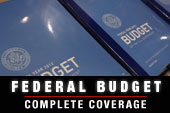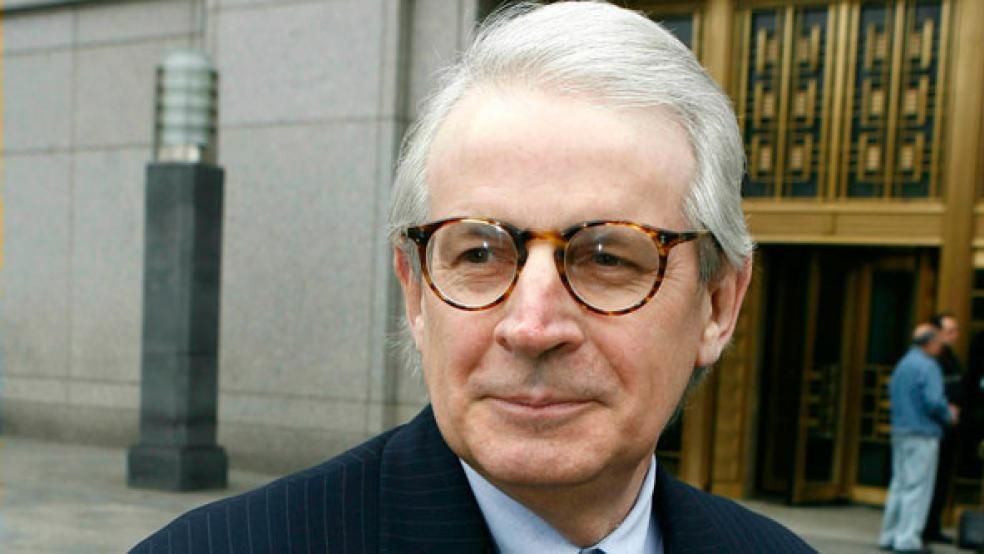David Stockman says that as far gone as this deficit-ridden country is right now, “even at this late date the sundown scenario could be avoided.”
What would it take to fix the country’s fiscal crisis? Stockman, former Reagan budget director and author of the new 768-page book The Great Deformation: The Corruption of Capitalism in America, says it would mean abandoning the Fed’s current easing policies and admitting outright that they have been “a failure.”

“Eventually,” he says, “the free market could regain its vigor and capacity for wealth creation. And, under a regime of sound money and honest finance, the one percent could continue to enjoy their opulence by earning it the old-fashioned way – that is, by delivering society inventions and enterprise that expand the economic pie, rather than reallocate it.”
Stockman, 66, was never one to mince words, not back in the ‘80s when he helped push through “trickle-down economics” – the so-called Reagan Revolution of tax cuts and spending cuts – and certainly not now.
The free flow of “mad” and “phony” money from the Fed, to the tune of $600 million printed an hour, he claims, is ruining this country.
“Why did we have the meltdown? Why did we have the Great Recession?” he asked rhetorically Monday night during a Reuters-sponsored debate, as he sat elbow-to-elbow with Peter Orszag, President Obama’s former budget director.
“The answer is we had a phony economy for four or five years before that,” said Stockman. “We had the great housing bubble – it was crazy. My argument is we can’t solve a bubble by creating another one. We’ve done it three or four times now – and this last one is the greatest ever yet.”
Stockman added that if we were to truly take “a realistic, unvarnished view of the economy, the huge headwinds that we’re up against – in the world, domestically, the baby boom retiring, etc., the Fed having to get off the edge of the limb it’s on – then we’re looking at, over the next 10 years, $15 to $20 trillion of more debt. We’re looking at a 150-percent debt-to-GDP ratio. We’re looking at a system that goes tilt because it’s not sustainable. That’s what I think is in the future.”
Peter Orszag, 44, now with Citigroup, countered that if we “harken back to those halcyon days of the 19th century, in which we had the gold standard and a less interventionist government, there were still bubbles, still financial crises, still a ton of economic volatility,” he said. To blame an ailing economy on “government intervention” is “fundamentally wrong,” he said.
Orszag said it’s vital to watch the rate “at which health care costs grow” – and that how we reform the “health care delivery system over the next five, ten, fifteen years” is going to hugely impact the economy.
About the only things the two former budget directors agreed on, as they sparred under the bemused eye of moderator Sir Harold Evans, was that the Bush tax cuts should end for everyone, that government should reduce defense spending, and that Social Security payouts need to be scaled back, especially for the wealthiest Americans.
Stockman blamed both parties for our fiscal woes. “Both parties today simply function as concierges to introduce politicians to K Street and the PACs and the money sources to run the reelection machines. They don’t stand for anything.”
The “Republicans stand for nothing,” he told the audience. “If the Republicans could pass TARP, what do they stand for? If the Republicans could have a rebate under [former Treasury Secretary Hank] Paulson and [George W.] Bush, passing out money – which we, Jack Kemp and all the rest of us supply-siders in the early 80s thought was a terrible idea – what do they stand for?
“If the Republican administration could shut down short selling because the chairman of Morgan Stanley went down there whining that somebody’s short selling his stock, what does the Republican Party stand for? They don’t stand for anything except reelecting themselves and raising money. Now, that’s Republicans – I could say worse about the Democrats, but I don’t need to.”
Orszag responded that any discussion of fixing the country’s ills from “a political economy perspective” has to “happen within some bounds of what’s remotely possible. It does no good to be so far off from what is practical ... that it’s a completely academic exercise.”
“I agree, Peter,” replied Stockman. “That’s why, in my little 13 recommendations at the end [of his book], I said these are great ideas and they will never happen.”
“But we’re looking for the practical ideas that could,” said Orszag, exasperated.
“The system has gone too far,” replied Stockman. “It cannot be rescued. It’s not politically correct to say that – but it happens to be the truth.”
For Stockman, this is the “straight unvarnished” truth, he later told The Fiscal Times. He says he doesn’t “have a horse in this race,” so his bluntness has the potential to wake people up. “Of course I want our country to be on the right path,” he said.





